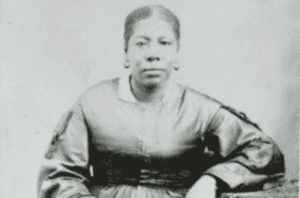Prior to the Civil War, the South accused the North of disrupting the South’s way of life and pledged not to abide by Lincoln’s possible election. Lincoln, in his famous Cooper Union address in 1859, brilliantly blew the whistle on the South’s guile: “[You say] you will not abide the election of a Republican president. In the supposed event, you say, you will destroy the Union; and then, you say, the great crime of having destroyed it will be upon us. That is cool. A highwayman holds a pistol to my ear, and mutters through his teeth, Stand and deliver, or I shall kill you, and then you will be a murderer!'”
Crafty blame-shifting abounds today as well. It’s the child defacing a wall and blaming his mother who placed him in timeout. Or the man who abuses his wife and says it was her fault because, he lamely explains, she made him angry. The formula: If you do not approve of my actions, you are responsible for the consequences of my actions.
Big Pain Little Pain
A variation in this blame game is the big-pain-little-pain distraction. A baby getting a flu shot reacts to the immediate pain and has no concept of the distant pain his parent is protecting him from: “That mean old man in the white smock hurt me and you didn’t come to my aid. It’s your fault.”
We don’t outgrow it. If one group’s behavior in public life will cause big pain in the long run, and another group steps in to stop that pain and in the process causes smaller but immediate pain, what is the first group going to do? You’re right: shout bloody murder about the immediate pain and demonize the second group as that mean old man in the white smock. It’s their fault.
Churchill was such a mean old man. He wanted to protect England from the pain of war, but his opponents focused on what it would cost to prepare her defenses. Given a choice of “pay now or pay later,” they opted to pay later. And pay they did.
The formula is so simple: If I want to do this and you don’t go along with me, you’re responsible for what happens. And blame shifting is easy to do if the little pain is immediate and the bigger pain is not.
A Public Policy Pattern
See the pattern in public life today? Do you recognize any opportunists who know distant pain is coming, but the immediate gain in votes and power is too enticing, so let a future generation worry about it? Any people around who are saying, “You won’t let me do what I want to do, so it’s all your fault”? Any mean old men trying to stop economic or governmental train wrecks?
So what should we watch for? Diversion, distraction, deviation. Just as a magician focuses your attention on one hand to divert your noticing what he is doing with the other, ask yourself: Where is my attention being diverted and why? Who gains from it? Is a more severe pain hiding behind all the yelling about the present pain? And … what should we do?
Lincoln again: “Let us be diverted by none of those sophistical contrivances wherewith we are so industriously plied and belabored…”
* * *
This article is an excerpt from Gary Lawrence’s forthcoming book: “The Relocated War in Heaven.”


















Gary LawrenceOctober 3, 2013
@Rhonda: Thanks for the great quote from Bastiat. I cite him several times in my new book. I agree; more people should read him. @Bill: Hadn't thought of the diff between kind and nice. A very good point.
BillOctober 3, 2013
I had a discussion a year ago about "kind" and "nice" in which we decided that "kind" was good (truthful, forward looking, honest) and "nice" was less desirable or even bad (petty lies to make you feel nice, avoiding a difficult decision, whitewashing a flawed policy), this article discusses big pain and little pain. Seem to me that